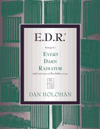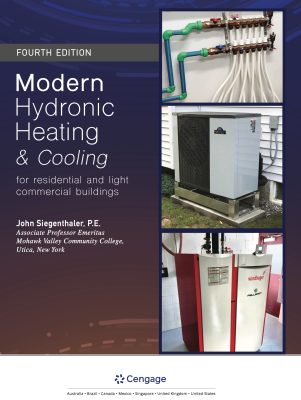DOE calls for 13 SEER on central air conditioners
The Air-Conditioning & Refrigeration Institute blasted the rule. The U.S. Department of Energy has "burdened the American consumer with a multibillion-dollar regulatory rip-off that makes a mockery of the rule-making process," said Clifford H. "Ted" Rees Jr., president of ARI.
The Bush administration has put the energy-efficiency rule and all other pending rules on hold for 60 days, said ARI spokesman Ed Dooley. The rule may be challenged by Congress or in the courts, he said. Bush's incoming secretary of energy is former Michigan Sen. Spencer Abraham.
"The department has determined that the new standards are the highest efficiency levels that are technically feasible and economically justified as required by law," DOE said in the Federal Register when it published the rule Jan. 22.
ARI won't argue that 13 SEER is doable. Manufacturers have produced units as efficient as 18 SEER, although few are sold. The manufacturers' organization, however, vehemently disagrees with the claim that the standards are "economically justified."
By ordering a 30% increase in the minimum efficiency standard for residential central air conditioners and heat pumps, Rees said: "DOE is enacting a cruel penalty on millions of Americans for whom air conditioning is a necessity, indeed a life saver in heat waves. This will be a very hard blow to many Americans living on low and fixed incomes in rural and urban settings."
DOE originally proposed a standard of 12 SEER for air conditioners and 13 SEER for heat pumps when it published its notice of proposed rule making last fall. Even that level was too high, ARI argued in the written comments it submitted in December.
The action by DOE came in the final hours of the Clinton administration despite urging from ARI and manufacturers to adopt a more moderate 20% hike in the minimum standard.
DOE apparently switched to the higher standard in the face of intense lobbying by a group calling itself the Appliance Standards Awareness Project, which was buying full-page ads in the Washington Post. The group's Web site is www.standardsasap.org. According to its Web site, one of the group's sponsors is Pacific Gas & Electric.
DOE has claimed that the higher minimum efficiency standard would help California's energy supply. The rule, however, does not go into effect until Jan. 23, 2006. ARI noted that it would take five to 10 years for replacement units to have any effect on the energy supply in California and even then the effect would be minimal.
ARI said tax incentives are needed to help shift consumers to a better understanding of the benefits of higher efficiency equipment as a way to reduce homeowner operating costs and electric generation by power plants.
Looking for a reprint of this article?
From high-res PDFs to custom plaques, order your copy today!





